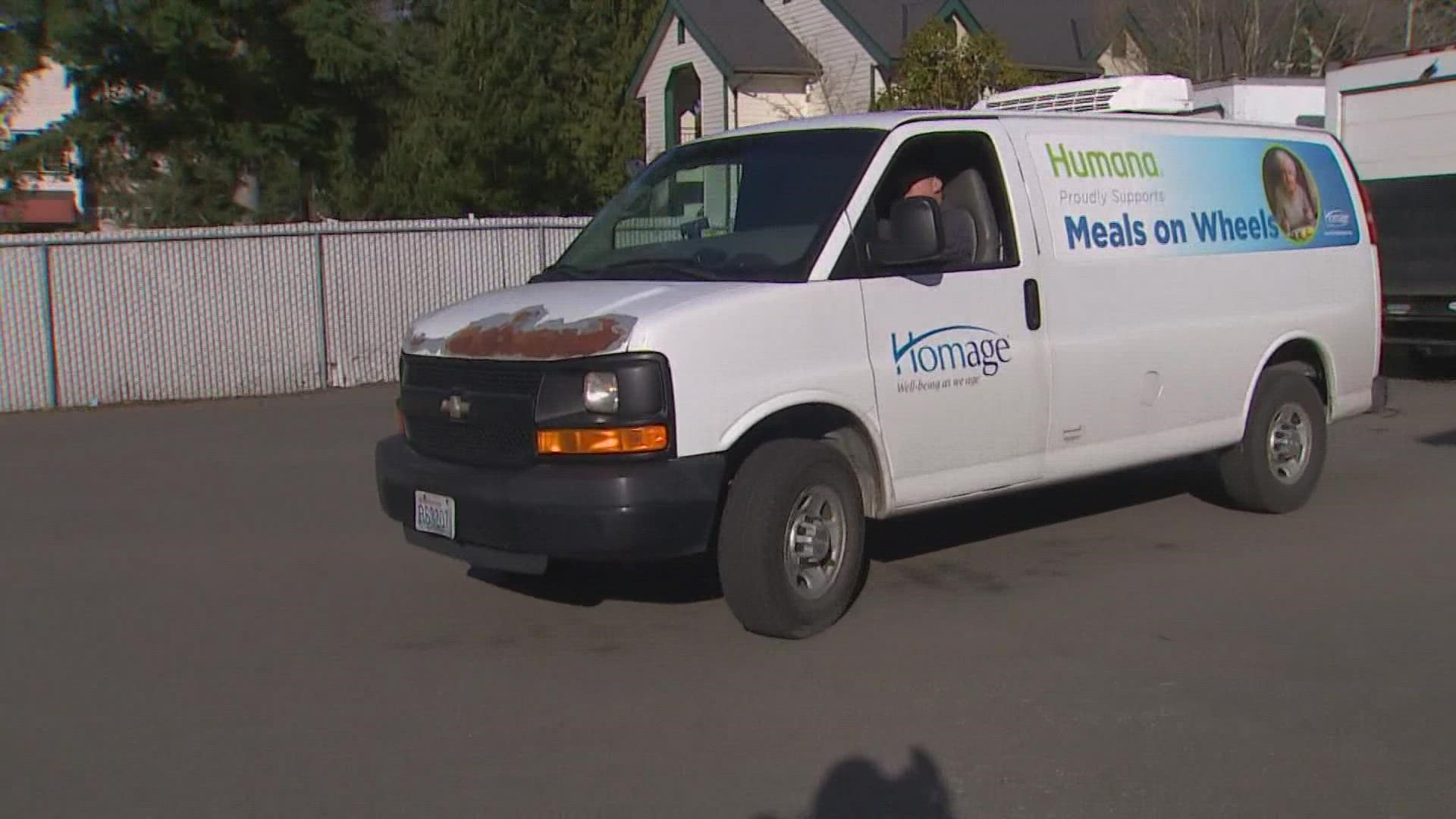LYNNWOOD, Wash. — Skyrocketing gas prices are starting to take a toll on charities in Washington.
Some organizations are now asking for help themselves as rising costs are forcing them to make difficult choices.
Bonnie Peters drives all over Snohomish County delivering food to those who aren't able to get it themselves with Meals on Wheels.
The agency serves 23,000 meals a month, and the number of people asking for help has grown exponentially during the pandemic.
"We see the need all over and we know how important this work is," Peters said.
Powering the wheels that deliver all those meals, however, is getting more expensive -- quite literally -- every day.
With gas prices surging to record levels and rising daily, Homage, the organization that runs the charity, is seeing its fuel costs jump by 60%. And that's as of right now. Those costs are expected to jump even higher as prices continue to rise.
The price crunch couldn't have come at a worse time, as food prices have gone up and more people are needing the charity's services.
"That concerns us because we either have to figure out how to raise the money or figure out how to cut," said Homage spokesperson Cynthia Andrews. "If we cut, that means someone's not gonna get their meals that week. We can't have that."
Homage also runs a transportation program that takes people to medical appointments, and other needs. Ridership has doubled during the pandemic and it's expected to grow even more. As it stands now, the agency expects to burn through its entire fuel budget in just 6 months.
"We're depending on our community to really help us with the rising costs of gas and supplies and food and all of that," said Andrews. "If people can't get to their dialysis appointments, that's a great concern. If they don't have food to eat, that's an even greater concern."
“The current climate highlights how food insecurity is so much more than the ability to put food on tables,” said Laura Hamilton, Chief Advancement Officer for Northwest Harvest, Washington state’s leading hunger-relief organization. “If people don't have money for gas, even getting to a store or to a food pantry becomes prohibitive.”
Meals on Wheels workers visit 800 homes every week. Part of their job involves wellness checks. In some cases, workers have found people in emergency medical situations and called 911.
Fewer trips into the community would translate to fewer contacts with our most vulnerable.
Bonnie Peters said helping as many people as possible is what fuels her.
She just hopes she can continue doing so.
"We're really out there saving lives," said Peters, loading up her van with food. "We've actually done that and it's critical work."

